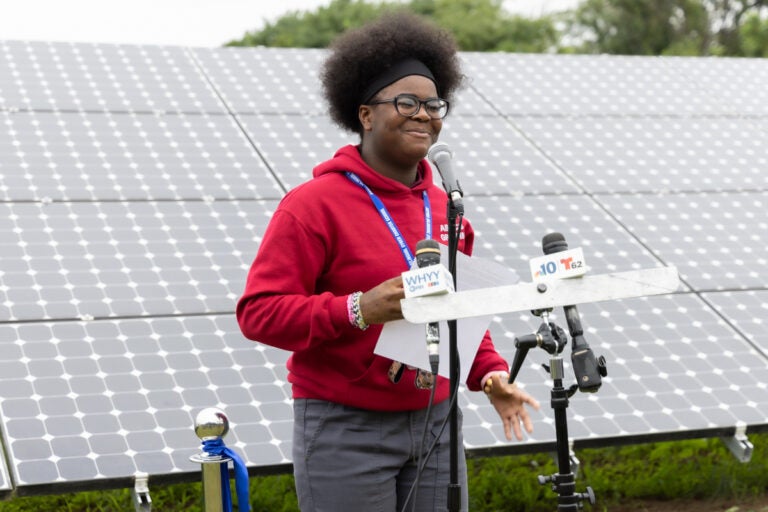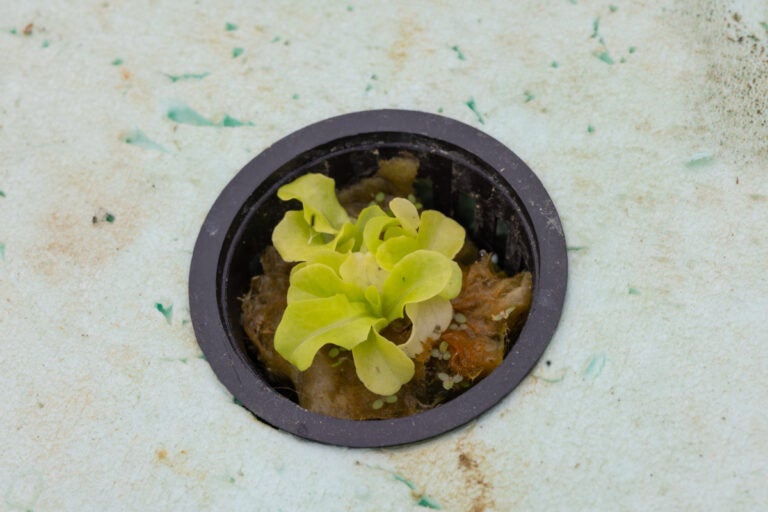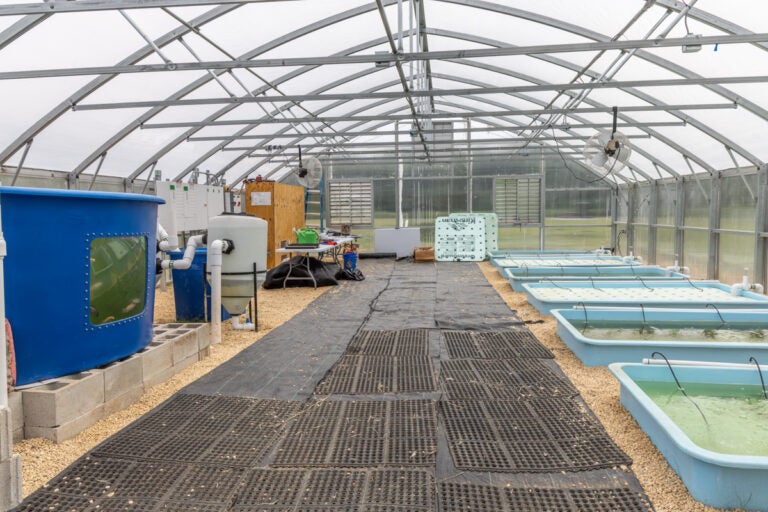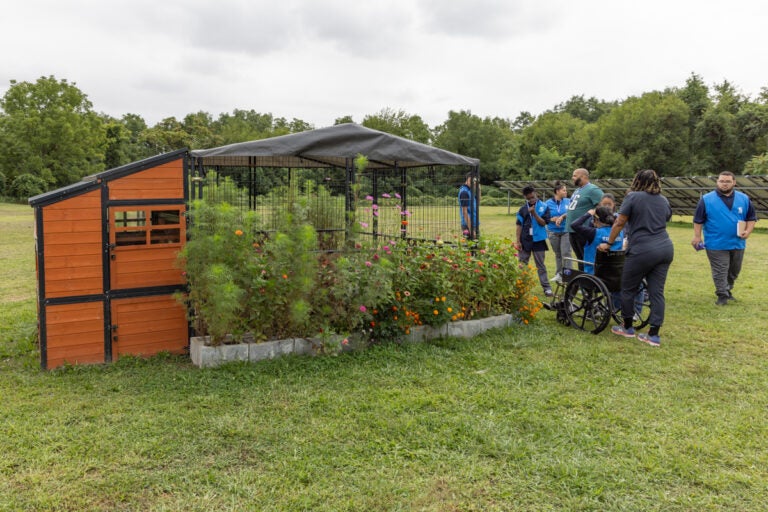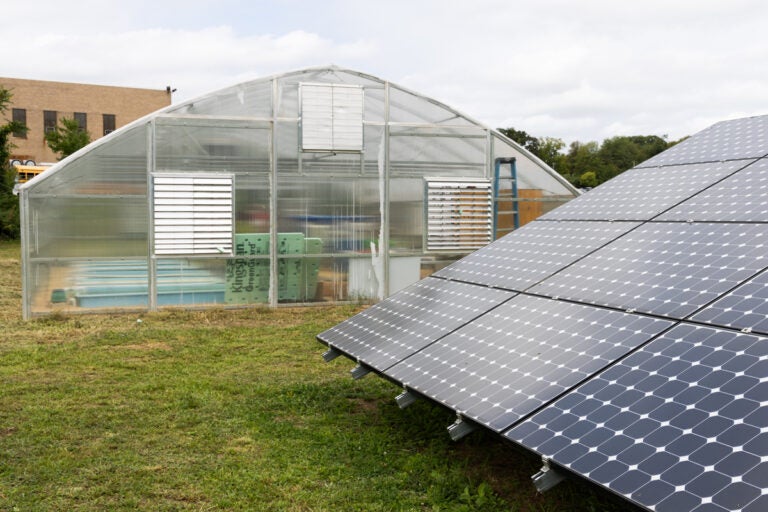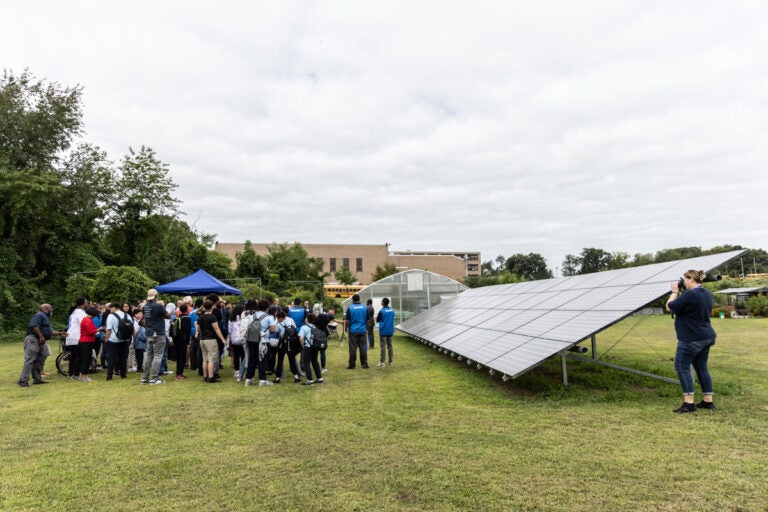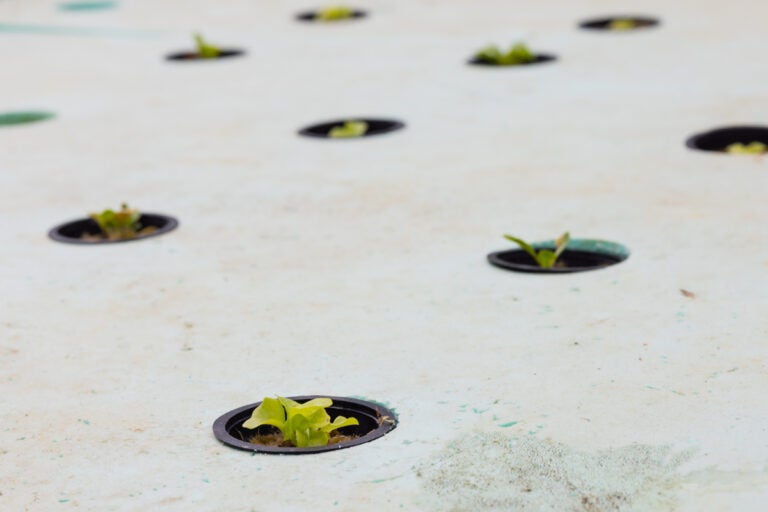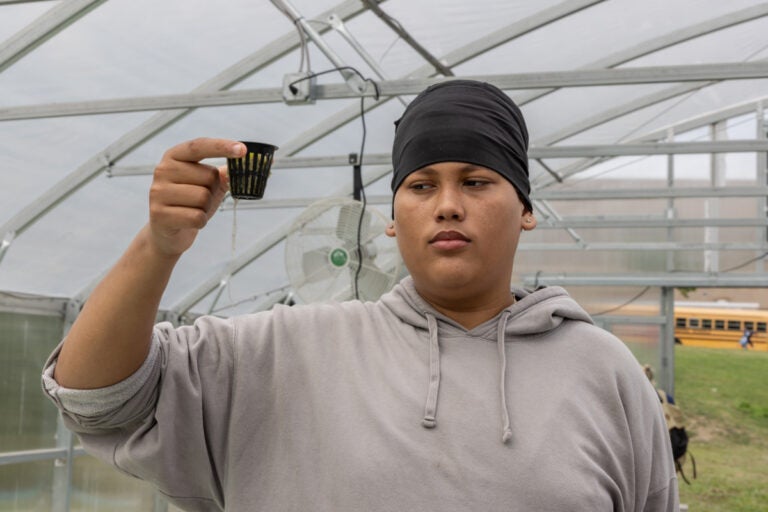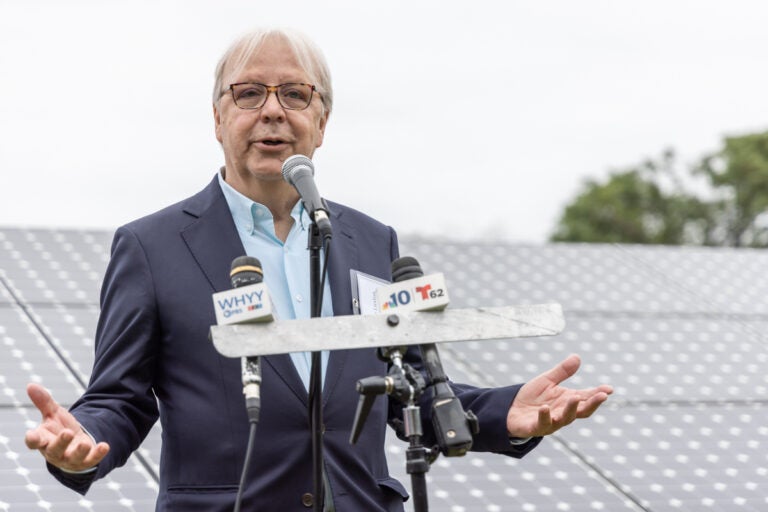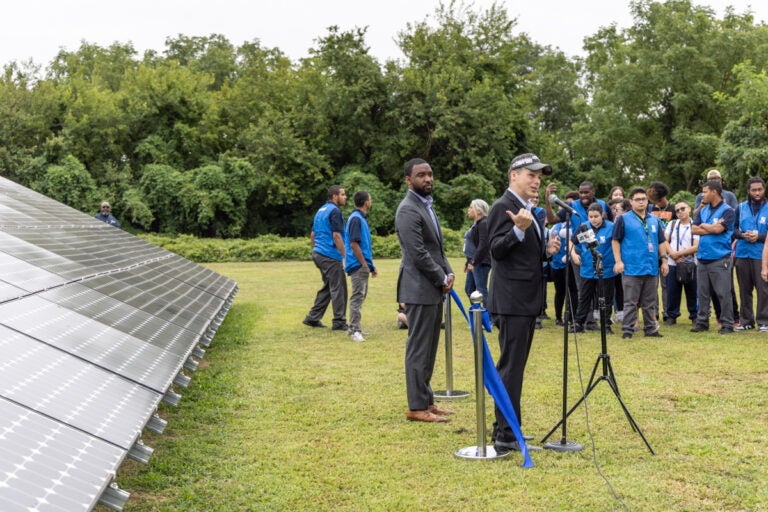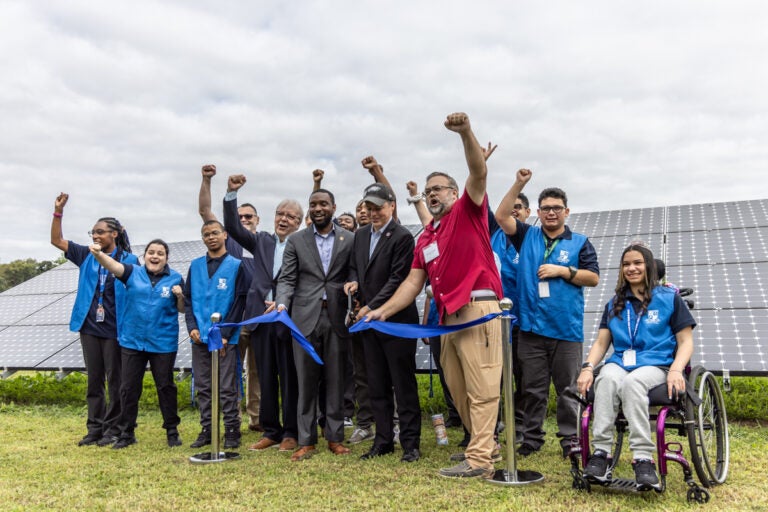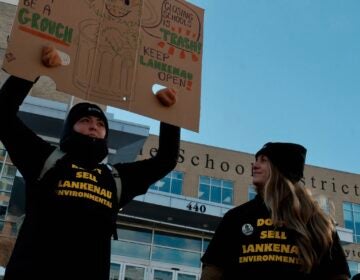North Philly charter school powers up its culinary program with solar
The new off-grid solar array runs an aquaponics system in a greenhouse where students will learn to raise fish and grow vegetables.
Have a question about Philly’s neighborhoods or the systems that shape them? PlanPhilly reporters want to hear from you! Ask us a question or send us a story idea you think we should cover.
ASPIRA Bilingual Cyber Charter School in Philadelphia’s Olney neighborhood is powering up its culinary program with energy from the sun.
The school unveiled a 14-kilowatt, off-grid solar array Friday that powers a new aquaponics system and other greenhouse equipment that’ll let students learn to raise fish and grow vegetables.
“This energy powers everything in our greenhouse, from the water pumps … to the fans, so we don’t melt away in the summertime,” said junior Najara Walker. “What’s amazing is we’re not just growing plants and fish here; we’re also reducing our carbon footprint.”
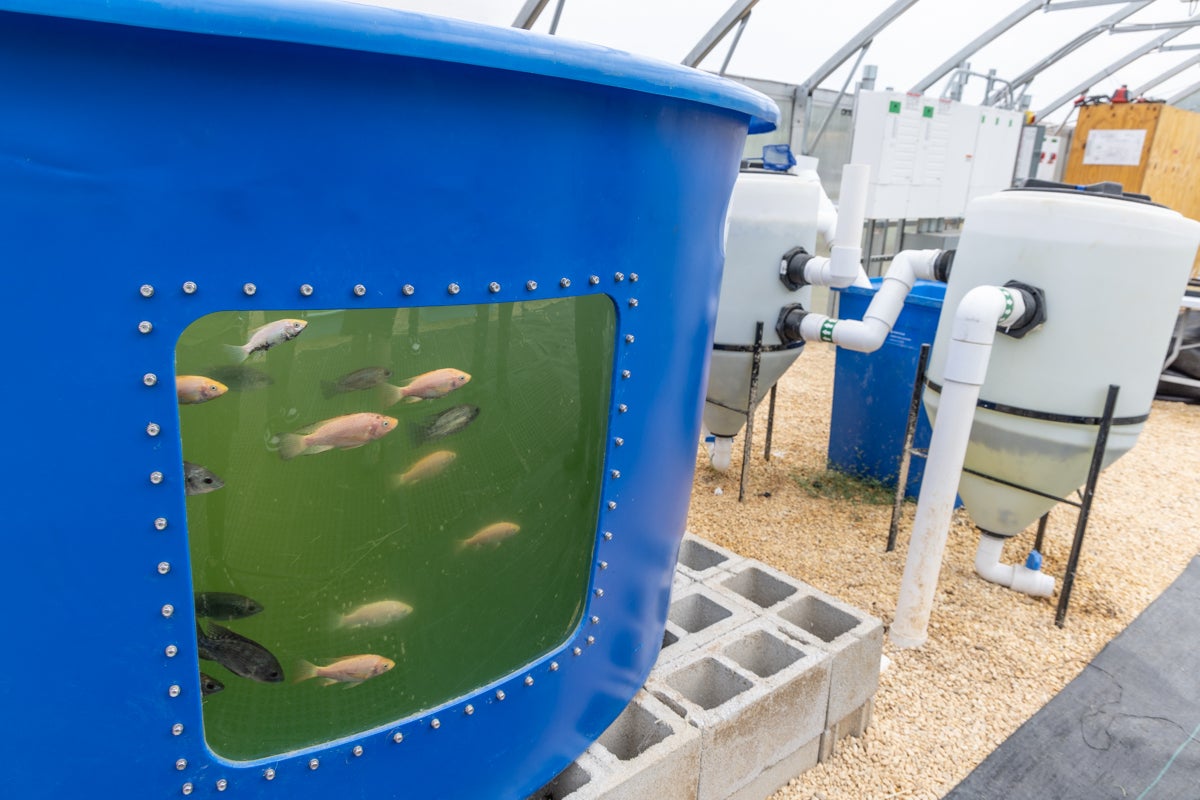
Elected officials, school staff and students gathered to cut a big ribbon in front of the new panels Friday. Students gave tours of the greenhouse, where week-old greens grew suspended in water and tiny pink and silver tilapia swam in a big round tank.
“These will grow to a certain size where we can make them in the kitchen, so we can have practice working with those,” said senior Jeremy Rivera. “It’s a lot of fun, it’s a good experience. And everything we have, we use. … We can use the fish waste to help our plants grow over there.”
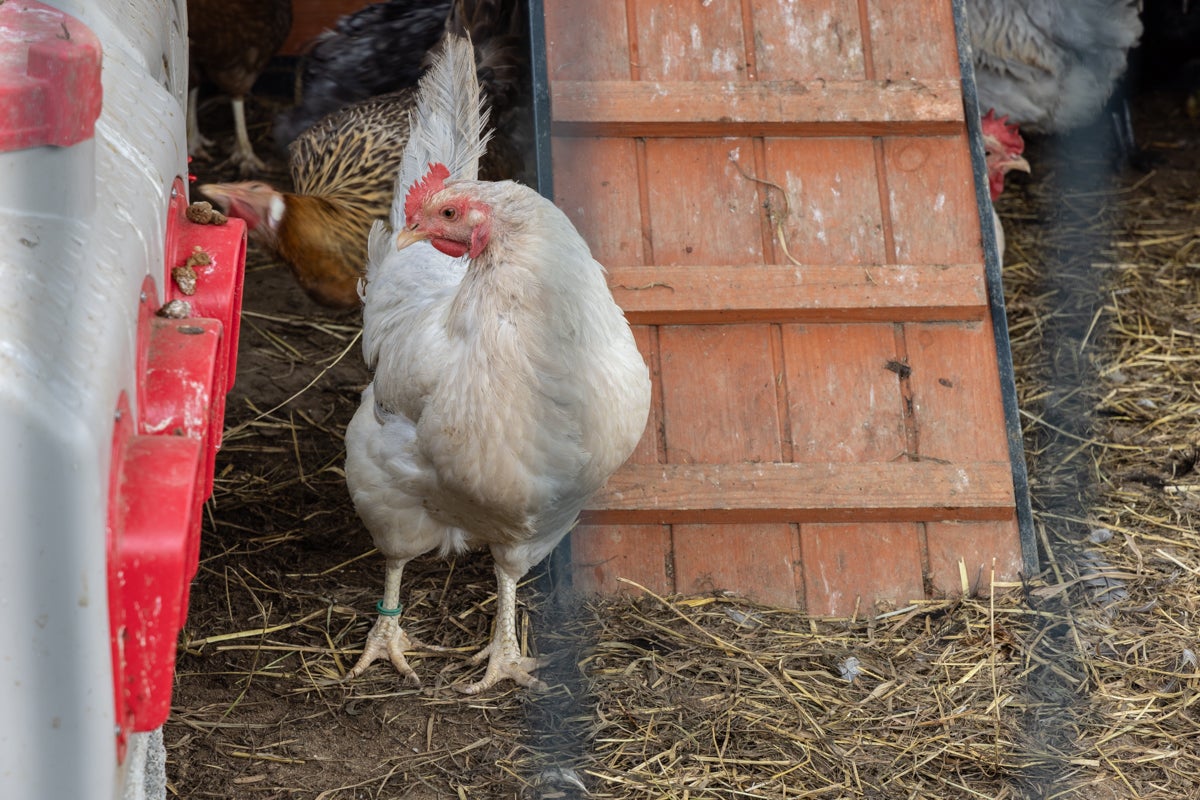
The new greenhouse is just one part of a broader hands-on culinary curriculum, said Director of Culinary and Environmental Education Daniel Pompile. The culinary program is working on launching a student-run cafe inside the school building ASPIRA Bilingual Cyber Charter School shares with several other charter schools, where staff will eat lunch.
“It’s heavily geared towards our special education students,” Pompile said. “It’s to help them transition to adulthood after school. They learned how to wait tables, learn how to cook food, take orders, run a cash register.”
Pompile hopes the greenhouse and an indoor vertical garden produce enough food to feed students and teachers, and have some left over that students can sell at a farm stand.
The solar project was partially funded by grants. School officials hope to get a federal tax credit, made available to schools through the Inflation Reduction Act, which would refund the school for part of the project costs. Pompile said that money would allow the school to invest more into hands-on education.
WHYY is your source for fact-based, in-depth journalism and information. As a nonprofit organization, we rely on financial support from readers like you. Please give today.




